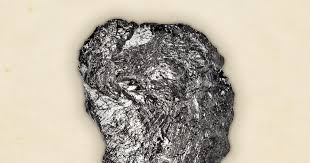
Breaking News
 IT'S OVER - I Have Proof: Fed Opened $24B Credit Line to 3 Banks (Jan 2nd Emergency Emails Leak
IT'S OVER - I Have Proof: Fed Opened $24B Credit Line to 3 Banks (Jan 2nd Emergency Emails Leak
 The Poo Doctor: This Gut Mistake Leads To Cancer. The Cheap Spice That Helps Repair...
The Poo Doctor: This Gut Mistake Leads To Cancer. The Cheap Spice That Helps Repair...
 Vaccine ingredients Exposed - Children's Health Defence "CHD"
Vaccine ingredients Exposed - Children's Health Defence "CHD"
Top Tech News
 Laser weapons go mobile on US Army small vehicles
Laser weapons go mobile on US Army small vehicles
 EngineAI T800: Born to Disrupt! #EngineAI #robotics #newtechnology #newproduct
EngineAI T800: Born to Disrupt! #EngineAI #robotics #newtechnology #newproduct
 This Silicon Anode Breakthrough Could Mark A Turning Point For EV Batteries [Update]
This Silicon Anode Breakthrough Could Mark A Turning Point For EV Batteries [Update]
 Travel gadget promises to dry and iron your clothes – totally hands-free
Travel gadget promises to dry and iron your clothes – totally hands-free
 Perfect Aircrete, Kitchen Ingredients.
Perfect Aircrete, Kitchen Ingredients.
 Futuristic pixel-raising display lets you feel what's onscreen
Futuristic pixel-raising display lets you feel what's onscreen
 Cutting-Edge Facility Generates Pure Water and Hydrogen Fuel from Seawater for Mere Pennies
Cutting-Edge Facility Generates Pure Water and Hydrogen Fuel from Seawater for Mere Pennies
 This tiny dev board is packed with features for ambitious makers
This tiny dev board is packed with features for ambitious makers
 Scientists Discover Gel to Regrow Tooth Enamel
Scientists Discover Gel to Regrow Tooth Enamel
 Vitamin C and Dandelion Root Killing Cancer Cells -- as Former CDC Director Calls for COVID-19...
Vitamin C and Dandelion Root Killing Cancer Cells -- as Former CDC Director Calls for COVID-19...
New Tech Could Give Coal a Scrubbing Until Renewables Are Ready

Nor can you argue that our electrified society is anywhere near ready to run without it. Until renewables scale up and become storable—available after sunset and between breezes, in other words—coal will continue to supply a big part of the world's energy.
And don't let recent reports of its death fool you, either. Sure, Oregon's legislature just passed a law promising to quit coal, but they gave themselves until 2030 to complete the wean. And that's in a state with beaucoup hydroelectric energy and a booming renewables industry. If you really want to know how coal is doing, look to growing economies (and massive populations) in places like India and China. The two countries may have greener ambitions, but both are still burning heaps of the dirty dark stuff. Renewables need time to take over, during which the coal industry is going to keep coughing up greenhouse gases and poisonous pollutants.

 "Boots on the Ground"
"Boots on the Ground"


